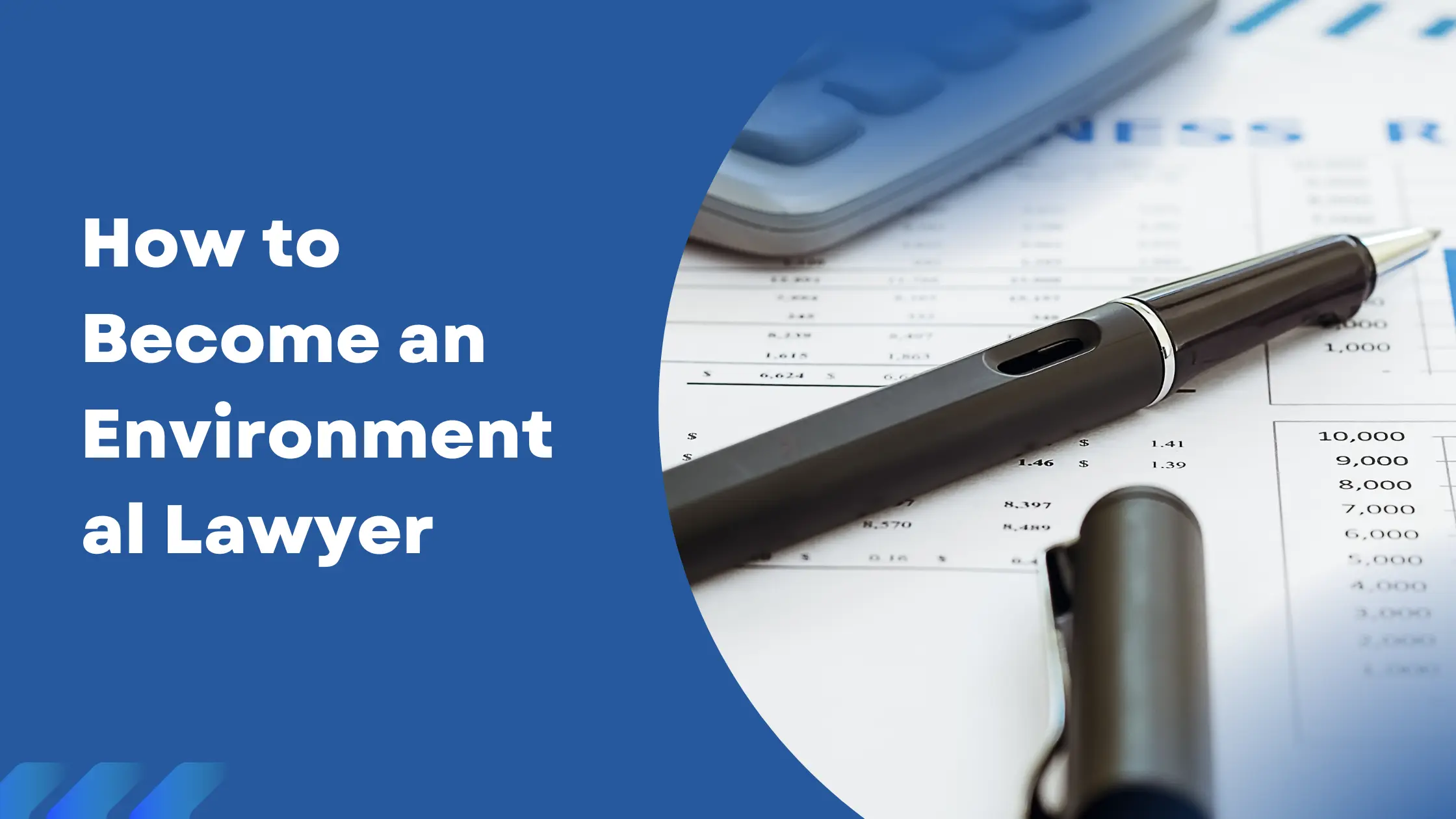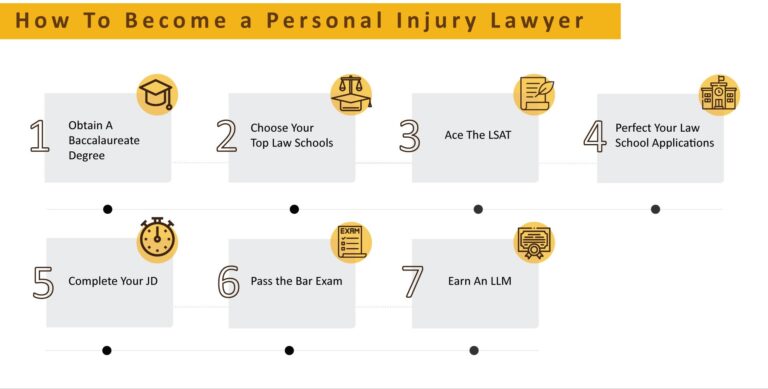How to Become an Environmental Lawyer?

To become an environmental lawyer, you need to complete a law degree and specialize in environmental law through coursework or experience. In addition, gaining practical experience through internships or volunteer work with environmental organizations can enhance your prospects in this field.
Table of Contents
Learn how to become an environmental lawyer, a professional dedicated to advocating for and legally representing environmental matters, such as regulations, compliance, and litigation. Collaborating with government agencies, corporations, and non-profit organizations, environmental lawyers ensure adherence to environmental laws and address concerns. Embark on a path towards becoming an environmental lawyer to actively contribute to the protection and preservation of the environment through legal expertise.

Education And Skills
Being an environmental lawyer requires a strong educational background and a specific set of skills. Here we will explore the necessary education path and the essential skills for aspiring environmental lawyers.
Undergraduate Degree
Before heading to law school, obtaining an undergraduate degree is a crucial first step towards becoming an environmental lawyer. While there is no specific major required, it is highly recommended to pursue a degree in environmental science, biology, chemistry, or any other related field. A solid foundation in these areas will provide you with the necessary knowledge and understanding of environmental issues, which will greatly benefit your future career as an environmental lawyer.
Law School
To become a lawyer, completing a Juris Doctor (J.D.) degree from an accredited law school is essential. Law schools typically require applicants to have a bachelor’s degree, although specific undergraduate majors are not usually required. During law school, aspiring environmental lawyers can take advantage of courses focusing on environmental law, natural resources law, and land use law. These courses delve into the intricate details of environmental regulations, conservation efforts, and environmental litigation, allowing students to develop a comprehensive understanding of the field.
Specialized Programs
In addition to law school, pursuing specialized programs or environmental law certifications can further enhance your knowledge and expertise in this specific area of law. Certain organizations and institutions offer programs dedicated to environmental law, providing opportunities for networking, practical experience, and specialized training. These programs can help you stay up-to-date with the ever-evolving environmental laws and regulations while also allowing you to establish connections within the field.

Skills Required
To excel as an environmental lawyer, possessing a unique set of skills is crucial. These skills will enable you to navigate the complex world of environmental law and effectively advocate for your clients:
- Analytical skills: Environmental lawyers must possess the ability to thoroughly analyze complex regulations, scientific data, and legal documents related to environmental issues. Keen attention to detail is required to decipher and interpret information accurately.
- Problem-solving skills: Environmental lawyers often face intricate problems and conflicts concerning environmental protection. The ability to identify root causes, think critically, and develop innovative solutions is essential.
- Strong communication skills: As an environmental lawyer, you must possess excellent oral and written communication skills. These skills are vital when presenting arguments in court, negotiating with opposing parties, and communicating complex legal concepts to clients, judges, and juries.
- Passion for the environment: An inherent passion and dedication towards environmental conservation and sustainability are key motivators for environmental lawyers. Passion drives long-term commitment and the desire to make a positive impact on the environment.
- Advocacy skills: Environmental lawyers function as advocates for both their clients and the environment. Effective advocacy involves building persuasive arguments, presenting evidence, and utilizing negotiation skills while keeping the best interests of the environment in mind.
Becoming an environmental lawyer requires dedication, a strong educational background, and a specific skill set. By pursuing the right educational path and honing essential skills, aspiring environmental lawyers can pave the way towards a successful and fulfilling career in this rewarding field.
Legal Requirements
Becoming an environmental lawyer requires meeting certain legal requirements. These requirements include obtaining a license, passing the bar exam, and completing continuing education. In this article, we will explore each of these requirements in detail, providing you with the necessary information to embark on your journey towards a successful career in environmental law.
Licensure
Obtaining a license is a crucial step in becoming an environmental lawyer. In order to practice law, one must be licensed by the state where they intend to work. The licensure process typically involves completing an accredited law school program and passing the state’s bar exam. This certification ensures that environmental lawyers possess the knowledge and skills necessary to represent clients effectively in legal matters related to the environment.
Bar Exam
The bar exam is a comprehensive assessment of a law graduate‘s knowledge and understanding of the law. It is a rigorous examination that tests the candidate’s legal aptitude across various areas of law, including environmental law. Each state has its own bar exam, which typically consists of both a written and a multi-state portion. Passing the bar exam is a significant milestone on the path to becoming an environmental lawyer, as it demonstrates your competence and eligibility to practice law in the specific jurisdiction.
Continuing Education
Continuing education is essential for environmental lawyers to stay updated with the latest developments in environmental law and to maintain their licensure. Once licensed, lawyers are required to participate in continuing legal education (CLE) programs offered by accredited providers. These programs offer opportunities to deepen their knowledge, acquire new skills, and stay informed about changes in regulations and legal precedents that pertain to environmental law.
Engaging in continuing education not only ensures that environmental lawyers remain competent but also allows them to enhance their expertise and provide high-quality legal representation to their clients. By staying current with advancements in environmental law, lawyers can effectively navigate the complexities of environmental issues, making a positive impact in their clients’ cases and in the pursuit of environmental justice.
Internships And Externships
Internships and externships play a crucial role in becoming an environmental lawyer. These valuable opportunities provide aspiring lawyers with hands-on experience, practical skills, and networking connections in the field of environmental law. In this section, we will explore the importance of internships, discuss how to find environmental law internships, and highlight externship opportunities that can enhance your legal career.
Importance Of Internships
Internships are highly important for individuals pursuing a career in environmental law. Through these internships, aspiring lawyers get the chance to work alongside experienced professionals, gaining practical knowledge and insight into the challenges faced in the field. This firsthand experience provides a valuable foundation for building a successful career in environmental law.
Finding Environmental Law Internships
When it comes to finding environmental law internships, there are several avenues to explore. Here are a few effective ways to discover internship opportunities:
- Check with environmental law firms: Many law firms, especially those specializing in environmental law, offer internship programs. Reach out to these firms directly to inquire about available internships.
- Research government agencies: Environmental protection agencies, such as the Environmental Protection Agency (EPA), often have internship programs designed to provide hands-on experience in environmental law. Visit their websites or contact them for more information.
- Collaborate with nonprofit organizations: Nonprofit organizations working in the field of environmental advocacy and conservation often have internships available. Research and connect with these organizations to explore internship possibilities.
- Utilize university resources: Universities often have career centers or departments dedicated to assisting law students in finding internships. Make use of these resources to identify and apply for environmental law internships.
Externship Opportunities
In addition to internships, externship opportunities provide another avenue for aspiring environmental lawyers to gain practical experience. Externships are typically offered through law schools and involve working at law firms, governmental agencies, or nonprofit organizations. These opportunities allow law students to apply their knowledge, learn from experienced professionals, and make valuable connections in the industry.
Overall, internships and externships are invaluable in preparing individuals for a career in environmental law. By actively seeking out these opportunities, aspiring environmental lawyers can gain real-world experience, develop essential skills, and pave their way towards making a positive impact on the environment through the legal profession.
Building Your Environmental Law Network
Networking is an essential step to becoming a successful environmental lawyer. By connecting with other professionals in your field, you can gain invaluable insights, build relationships, and open doors to exciting opportunities. Here are some effective ways to build your environmental law network:

Joining Professional Associations
Joining professional associations is a great way to connect with like-minded individuals and expand your network in the field of environmental law. Some renowned associations in the industry include:
- National Association of Environmental Law – This association provides a platform for environmental lawyers to collaborate, share knowledge, and stay updated with the latest developments in environmental law.
- American Bar Association’s Section on Environment, Energy, and Resources – Becoming a member of this section allows you to participate in seminars, conferences, and networking events, offering valuable opportunities for career growth.
Attending Conferences And Workshops
Attending conferences and workshops related to environmental law is an excellent way to expand your knowledge, showcase your expertise, and network with professionals in the field. These events often feature prominent speakers, panels, and breakout sessions where you can learn about the latest trends and connect with industry leaders.
Networking Events
Attending networking events specifically tailored for environmental lawyers can help you establish meaningful connections. Look out for local or national events designed for legal professionals focusing on environmental issues. Remember to bring your business cards and engage in conversations to make a lasting impression.
Mentorship
Seeking mentorship from experienced environmental lawyers can provide valuable guidance and support throughout your career journey. A mentor can offer insights, share their experiences, and help you navigate complex environmental law cases. Reach out to lawyers in your desired field and express your interest in finding a mentor. Additionally, some professional associations and organizations may have formal mentorship programs you can participate in.
Job Opportunities And Career Path
Are you passionate about protecting the environment and ensuring a sustainable future for our planet? If so, a career as an environmental lawyer may be the perfect fit for you. Environmental lawyers play a crucial role in advocating for environmental protection, enforcing environmental laws, and representing clients in legal proceedings related to environmental issues. In this post, we will explore the various job opportunities and career paths available in the field of environmental law, ranging from government agencies and nonprofit organizations to private law firms and academia
Government Agencies
Working for government agencies is a common career path for environmental lawyers. These agencies include the Environmental Protection Agency (EPA), the Department of Justice (DOJ), and state-level agencies responsible for environmental regulation and enforcement. As an environmental lawyer in a government agency, you will have the opportunity to shape environmental policies, draft regulations, and participate in litigation aimed at protecting natural resources. This career path offers stability, competitive salaries, and the chance to make a significant impact on environmental issues.
Non-profit Organizations
Environmental non-profit organizations are another avenue for environmental lawyers to pursue a rewarding career. These organizations work tirelessly to protect the environment, promote sustainable practices, and advocate for the rights of communities affected by environmental issues. By joining a non-profit organization, you can be involved in litigation, policy advocacy, and community outreach initiatives. Non-profit organizations often provide a more dynamic work environment, where you can collaborate with like-minded individuals and make a tangible difference in the world.
Private Law Firms
Many private law firms have specialized environmental law departments, catering to clients who need legal representation in environmental matters. These firms work with businesses, government agencies, and individuals facing environmental challenges, such as compliance issues, environmental impact assessments, and contaminated land disputes. Joining a private law firm can offer a diverse range of cases and clients, providing you with valuable experience and opportunities for professional growth. As an environmental lawyer in a private law firm, you can work on cutting-edge environmental litigation and advise clients on regulatory compliance.
Academia
For those interested in research, teaching, and policy development, a career in academia may be a suitable path. Environmental law professors have the opportunity to conduct research, publish scholarly articles, and shape the next generation of environmental lawyers. Additionally, teaching environmental law courses allows academic professionals to inspire students and instill a passion for environmental protection. Pursuing a career in academia often requires advanced degrees, such as a J.D. and a Ph.D. in environmental law or a related field.
International Organizations
International organizations, such as the United Nations Environment Programme (UNEP) and the World Wildlife Fund (WWF), offer unique opportunities for environmental lawyers to work on a global scale. These organizations tackle pressing environmental issues, collaborate with governments and NGOs, and develop policies to address climate change, biodiversity loss, and pollution. By joining an international organization, you can contribute to global environmental sustainability efforts, engage in international negotiations, and work with diverse stakeholders from around the world.
Conclusion
Becoming an environmental lawyer requires a passion for protecting the planet and a commitment to legal advocacy. By obtaining the necessary education and experience, developing strong analytical and communication skills, and staying informed about relevant environmental issues, you can pave your way toward a successful career in environmental law.
With the increasing global focus on environmental protection, there is a growing demand for skilled environmental lawyers who can contribute to safeguarding our planet for future generations. So, embark on this rewarding journey, and be the voice for the environment!
Introducing Jonah Plum, a legal luminary whose journey through the corridors of justice has been intertwined with the eloquence of the written word. Born and raised in the vibrant city of Seattle, Washington, Jonah's early fascination with language and debate laid the foundation for a remarkable career in law.
Jonah's scholarly odyssey began at Harvard Law School, where they immersed themselves in the study of jurisprudence, honing their analytical prowess and legal acumen. Armed with a law degree, they entered the legal arena, navigating courtrooms and boardrooms with a fervor for justice. Yet, it was the realization of the transformative power of the written word that led Jonah to pivot from legal briefs to the world of blogging.
A digital advocate in the truest sense, Jonah recognized the need for demystifying legal concepts and making them accessible to a broader audience. This blog, a virtual repository of legal insights, transcends geographical boundaries, connecting with a global readership hungry for clarity amidst legal complexities.
Beyond the black letter of the law, Jonah delves into the human stories that underscore the legal landscape. Their writing goes beyond legal analysis, weaving narratives that humanize the law, shedding light on its impact on individuals and society.






